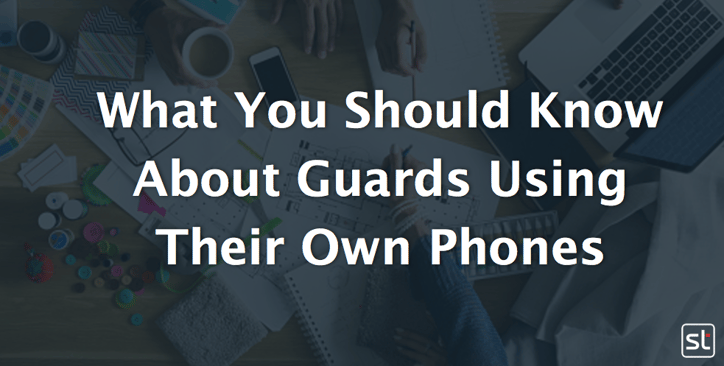The Silvertrac Extra
094: What You Should Know About Guards Using Their Own Phones

In August 2014, California’s Second District Court of Appeal ruled that companies with employees in California must reimburse their employees for work-related voice calls on their personal cellphones.
The Labor Code Section 2802 requires the employer to reimburse employees; whether the employee has an unlimited-minutes or limited minutes, the employee is owed a reasonable percentage of their cellphone bill.
According to Forrester surveys, 54% of United States information workers pay their entire mobile phone bill (including data plans) for phones they utilize for work.
Currently, California is the only state that has these laws, but with many companies requiring employees and guards to use their own devices, it’s a smart idea to formalize your BYOD policy, and possibly a reasonable reimbursement plan.
If you’re going to require employees use their own devices for work, it should be a formal part of your hiring process, including onboarding paperwork and program. You’ll also want to consult with the company lawyer to ensure all of your bases are covered.
While the California ruling strictly focused on reimbursement for cellphone minutes, it’s not unlikely that future cases could include other technology expenses such as data plans, home internet, software, and file sharing services.
Things to consider when formalizing a BYOD plan:
- What devices will the policy include (cellphone, laptop, tablet, etc.)?
- What kind of service plans do your employees currently have?
- What risks would a BYOD plan present to your business?
- How will personal devices be secured?
- How will the reasonable reimbursement be calculated?
Current Silvertrac Customer Lawrence Borgens of Delta Protective Services was able to meet California compliance laws by folding cellphone reimbursement payments into the Uniform Maintenance Allowance. This way, its non-taxable.
Silvertrac's security guard management software allowed Lawrence’s employees to use their own devices for the job, and he could plan for the amount of data the app would require, therefore planning for monthly reimbursement costs.
The Pros & Cons
Of course, there are many pros and cons that must be considered in order to create a formalized BYOD plan that fits your business. The first thing to consider is if a BYOD plan is even right for your company and its employees.
On the upside, employees get to use their own devices, which means they know how to use them and will probably take better care of them. It’s also one less item they have to charge and remember to bring to work with them.
Even with the reimbursement plan, BYOD still poses great financial benefits for employers, although there are security risks to consider.
Still unsure about the BYOD model? Feel free to speak with one of our Silvertrac representatives to calculate the cost benefits of the plan specifically for your business today. We've built a great calculator to help you compare the cost of both plans. You can email us a info@silvertracsoftware.com or call us at 888-505-8722 ext 8.





